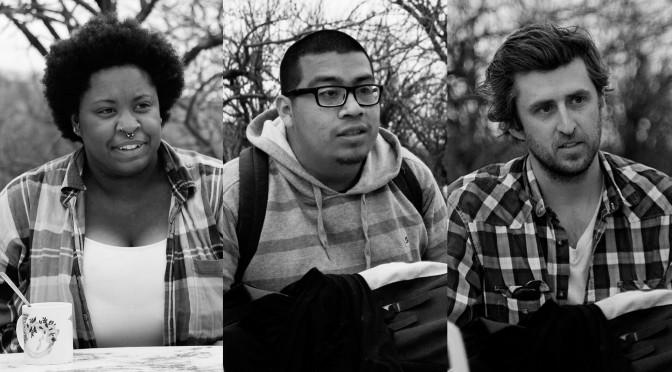This article by Denise Holley appears in our spring newsletter.
Spring break doesn’t mean beaches and parties for students who come to the No More Deaths camps in March. Instead, they lug water on long hikes in the rugged Arizona desert. They sleep in tents and eat with other students and adults from across the count who share their concern for migrants as they journey across unforgiving terrain.
Mariah Wallace, 21, from Eureka, California, first came to the Arizona desert in 2014 “because there are human beings getting sick, getting hurt and dying in the desert,” she said.
“I think it puts my privilege in perspective, being an American citizen, being able to see my family, doing pretty much what I want.”
The political-science major from Humboldt State University expected to camp out and lend a hand, but was surprised by the scale of No More Deaths’s operation to aid migrants, she said. “I never really thought about emergency phones, a medical tent and socks for people to change into.”
Now in her second year on spring break, Wallace said the experience helps her appreciate life in the United States.
“I think it puts my privilege in perspective, being an American citizen, being able to see my family, doing pretty much what I want,” Wallace said.
Andy Whinery, 28, from Amarillo, Texas, took a break from his editing job in Mexico City to spend a week at Byrd Camp with his girlfriend, Red Samaniego.
“I hope to help people who are in need and get enough perspective about the work NMD is doing to take that back to my friends and family.” Whinery said.
The hiking was more difficult than he had expected, Whinery said. But seeing water bottles slashed was tough emotionally.
“It made me angry,” Whinery said. “It made me sad … how much evil toward helpless people is implied in that action.”
Jesse Zambrano, 18, lugged a gallon of water on his first hike of nine miles and drank most of it, he said. “How can people survive in the desert for a week with so little water?”
His group encountered a Border Patrol agent. Zambrano, a sociology major from Humboldt, sensed anger and prejudice in his expression, he said.
Zambrano’s parents left Puebla, Mexico and crossed the US border without documents, he said.
His father gained legal status through the 1986 immigration law, but it took years for his mother to get her green card.
“Many times, we disregard the advantages we have,” Zambrano said. “Being Mexican American, we are aware of the struggles our families go through.”
Camp facilitator Alyn, 24, heard stories about crossing the desert from immigrants she met in her native Sonoma County, California.
“I’m really upset with US border policy,” said Alyn, a UC Santa Cruz graduate in community studies, who first came to spring camp in 2013.
“I feel like my skills are useful here,” she said. “I know how to drive a truck, hike and speak Spanish.”
In her second year as a facilitator, Alyn helps volunteers utilize their different skills, she said. “People find the place where they thrive.”
How can volunteers make a difference? Alyn believes the most valuable act is leaving jugs of water.
Migrants sometimes tell her, “We found your food and water on the trail. I don’t know what we would have done without it,” Alyn said.
The three-week spring volunteer program attracted 73 students and adults who camped in NMD’s desert camps in Arivaca and Ajo.

